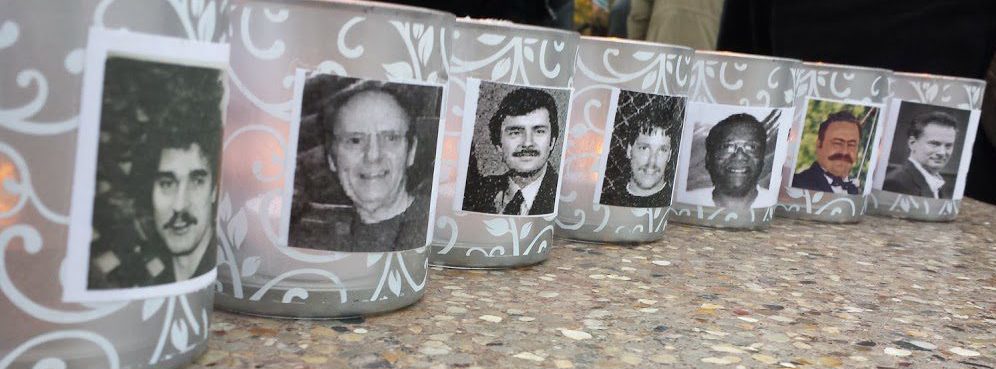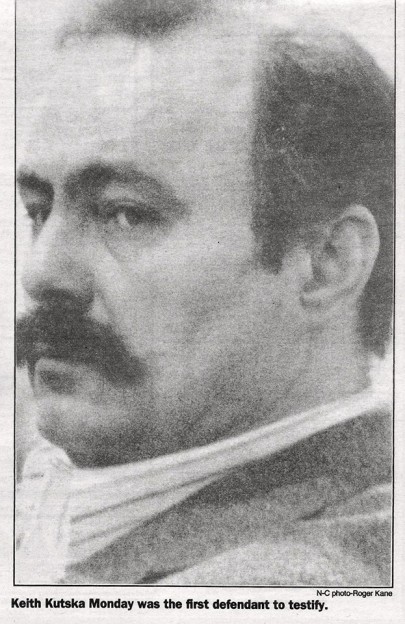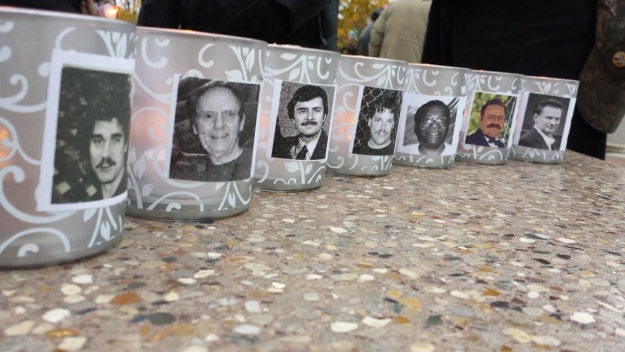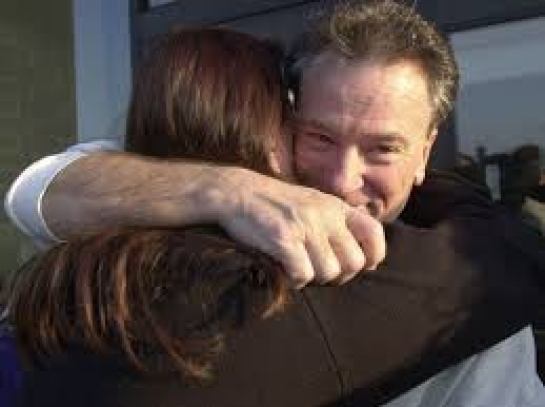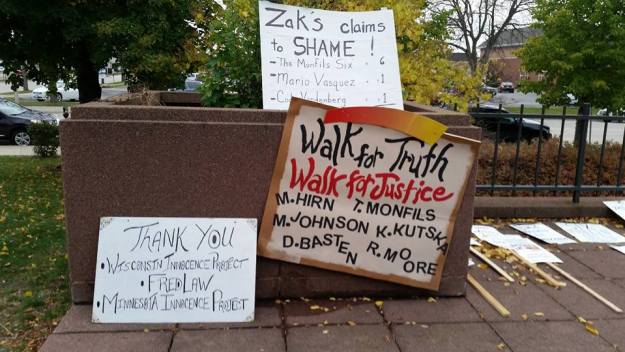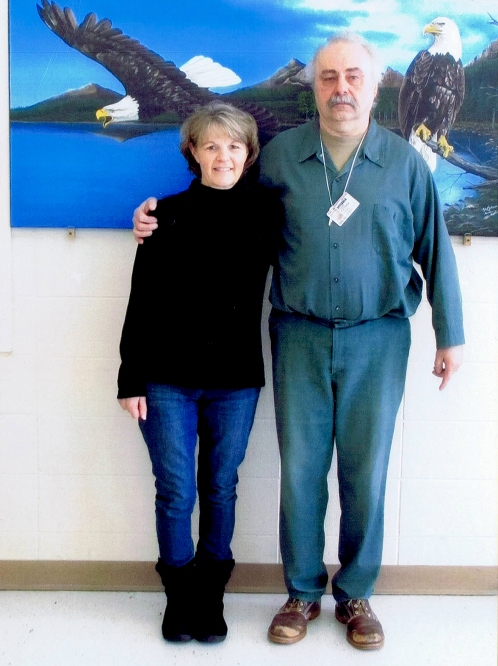Thanks for visiting. It’s been a while since my last posting.
I’m checking in with a quick update on latest activities in my ongoing mission to advocate for six innocent men. With COVID-19 putting a halt to all book events and nonessential travel, I’ve spent the past year revising my book by inserting new information, eliminating lesser relevant information, and adding additional chapters that contain exciting new developments. This second edition, which will include the entire story from the first book as well as the other aforementioned content, will be published sometime this year. So, stay tuned for the next wave as I once again, do my best to “shake up the legal system in the name of six wrongfully convicted men!”

Brown County Courthouse, Green Bay, Wisconsin
This past year I’ve been asked to participate in virtual class sessions with college students, many of whom are in undergraduate sociology, criminology, and legal studies who have been taking a course on wrongful convictions. Part of their assignment has been to read my book prior to my joining them for a later discussion. My next (virtual) session takes place this week on Thursday, March 25, 2021.
And now…allow me to step aside and present to you these recent class act (Amazon) reviews from some of those students. There are quite a few so, grab a favorite beverage and get comfy…
5* Truly Inspirational! “Reclaiming Lives by Joan Treppa is such a great book. It really shows that there are truly people on this planet who genuinely care about people’s well-being. Her passion in this book is uncanny, and I wholeheartedly admire her bravery and determination in helping the wrongfully convicted “Monfils Six” see justice and freedom. This book kept me on my toes, and I can honestly say it was really hard to put down! Treppa’s journey is truly an inspiration to us all – it shows me that people can do good when they put their minds to it and give a task their all. Treppa began her work after reading a book about this case’s facts, and she is an ordinary person with a non-legal background in criminal justice. Both her passion for the Monfils case and her care for people led her to the choice of helping the men accused of this crime, and I can only hope to be as brave as she was when she made that decision! I enjoy the fact that she chose to write it as more of a memoir rather than just a story with a series of the events that perspired. Not only does it make it even more evident that she truly cares, but it also made it a really captivating book!
This book should definitely be required in schools (high school and college) as it is incredibly insightful and a really good book for discussions. I suggest to anyone reading this to keep up with this case on Joan Treppa’s website because this case is truly baffling! I am very grateful to have been allowed to read this book for a class because otherwise, I do not think I would have ever come across this book. This book has proven to me, yet again, that the American criminal justice system needs to be improved and held accountable for its misdeeds.” – Shannon
5* Criminal Justice Must Read!! “Reclaiming Lives is an absolute must read for anyone considering a career in the criminal justice system or working with the non-profit organization the Innocence Project! Not only is Joan Treppa a fantastic writer, she is also an incredibly determined individual! I cannot tell you how much I appreciated this book, it invokes a passion for helping people that has been lost in many of our lives. While reading this book I felt almost like I was standing alongside her on this journey. Treppa really gives this story a personal feel that will inspire you to take action and right the wrongs of the criminal justice system. It is heartbreaking to know that there are so many people in prison for a crime that they did not commit or for a crime that was completely fabricated. Luckily there are people in this world like Joan Treppa, to pursue what is right and just. She is truly an inspiration, especially to anyone who is planning to have a career in the criminal justice system.
Joan Treppa is a unique individual who has dedicated so much of her time and energy to helping six innocent men. Since Treppa is an average everyday person, her book is written in layman’s terms so it is easy for the average reader to understand and relate to. It is my belief that if more people were like Treppa, there would be fewer innocent people in prisons. We could all learn a thing or two from her determination and her bravery. I hope that this review gives you the gentle nudge to purchase her book or to at least look into volunteering with the Innocence Project team. There are approximately 1.5 million people convicted of felonies and are serving time in prison, of those 1.5 million roughly 15,000 are innocent (Norris et al. 2018, p. 6). Joan Treppa and the people working with the Innocence Project are dedicated to freeing those innocent people and making sure that wrongful convictions do not happen to anyone else. What will you do to help?” – Erin H.

5* An Interesting Book! “Reclaiming Lives by Joan Treppa is a unique book. Joan Treppa describes her journey to help seek justice for the six innocent men that were accused of a crime they did not do. I had to read this book for class and I could not put this book down. I thought Joan Treppa did a great job telling her story and made it possible for her audience to connect to her and her journey. I have read books about wrongful convictions however, I have not read any book quite like this.
Joan Treppa had no relations to the men she was trying to help, she was simply just an advocate for justice. I believe her story is inspiring for other advocates wanting justice for innocent people in prison. Joan Treppa shows throughout her journey how hard and emotionally draining advocate work can be, however, she kept pursuing to try and help these men receive justice. Reclaiming Lives although can be an inspirational book it also can be a hard book to read. I am a very empathic person, and when I read this book I became super emotional when thinking about these innocent men and what they had to go through. These men did not deserve to go to prison and face the hardships they faced.
I really liked how Joan Treppa set up this book. In the beginning, she describes how she got involved with the Monfils case and then each chapter going forward describes each step she took to help these men receive justice. As a social justice advocate, I really enjoyed reading this book. It does a good job of highlighting the hardship advocates can go through but how it is important to not let that stop you from seeking justice. I would recommend this book to anyone who is interested in learning about wrongful convictions or who wants to know how impactful advocates can be to people and communities.” – Unknown
4* A Great Read about the Fight for Innocence, from Inside and Outside of Prison. “Reclaiming Lives: Pursuing Justice for Six Innocent Men tells the incredible story of a case of injustice that has gone on far too long, and Joan Treppa’s journey of becoming a citizen advocate for the wrongfully convicted men. While I wish that we got a little more of the intricacies of the case from the perspectives of said men, the work done in this book to explain how they have been mistreated and blamed in the criminal justice system, and how Joan has become the fighter for their innocence is nothing short of amazing. What makes the book so interesting is that it is not just the story of the men and their wrongful convictions but more so about Treppa, as someone who initially was just a person interested in the case with little prior legal knowledge, taking huge steps forward and becoming the advocate she is today for not just these six Wisconsin men, but many others as well. This dedication of her life to helping out others that have been less fortunate is inspiring to see how a person not personally connected to a case will go so far to help fight for what is right in a system that often is plague with many wrongs. Something that really drives this point home well is the use of more causal, everyday terms to help explain what the criminal justice system has done and her efforts to get them exonerated. Instead of being riddled with criminal and legal jargon that can often push readers away, Joan really makes it clear that with just a little learning, everyday readers like you and me can become involved in helping free those who have been wrongfully convicted. The book is a great read that, although at times may seem slow, tell the real struggles that both the innocent men and Treppa go through which is absolutely worth taking the time to read.” – C-Z

5* Great Read! “Reclaiming Lives” is the story about a brave woman, the author of the book, Joan Treppa, who sought to bring awareness of the innocence of six men who were wrongfully convicted of murder in Green Bay, WI. This book takes you on a rollercoaster of emotions as you travel through time with the author and her experiences and fight to get these men exonerated. I enjoyed reading about Treppa’s journey and the hardships she and her colleagues faced in their fight. This book is incredibly eye-opening to how common wrongful convictions are. It makes me angry that these men lost everything over several government actors’ misconduct. And it will tug on your heartstrings to know all that these men have lost while being incarcerated. Joan Treppa is incredibly inspirational and will make you want to know more about where, to begin with helping out other people who are wrongfully convicted. This book hit home for me because I was born in Wisconsin and currently live in the Minneapolis area. It made me teary-eyed to hear about how many Minneapolis community members contributed to helping these six men. This book is very well written and gives an excellent play-by-play of Joan’s journey.
I promise once you start reading this book, you will not be able to put it down. I recommend this book to anyone interested in wrongful convictions, especially those with a closed mind about wrongful convictions. This book sheds light on how easily wrongful convictions occur and their effect on the exoneree and their family members. We always tend to focus on the incarcerated people, and Joan makes sure to tell everyone’s story, including the stories of some of the wrongfully accused family members. Joan shows the importance of a community coming together to advocate for others who don’t have the opportunity to do so for themselves. She has touched so many people with this book. She also shows how the Green Bay Police Department and prosecutors mishandled this case.” – Rachel
5* Book Review: “This book was gripping from the very beginning. Personally, I really liked the perspective of Joan writing from the position of a citizen advocate, a position that is rarely talked about today. Many people like to take the frontlines on these issues and I think Joan’s perspective offers a new light on the situation as a whole. This perspective shows us how important this issue is based on other normal people becoming entrenched by this case. It made me want to know more about it too and why it had enraged all of these different types of people. The case that this book follows was mind blowing. As you will read, even people who had no idea about how the criminal justice system functions knew that something was wrong right from the start. The book talks about the intricacies of the case and the people that are still out in the world trying to get the rest of the people out of prison. An interesting dynamic throughout the entirety of this book was that one of the original six defendants has been released, while the others have yet to have an appeal approved. This one defendant, known as Pie, spends his life after prison trying to right these wrongs. It is fascinating hearing from his perspective about what life is like for these men who are still in prison and living in that environment. He also gives key insight to many of the activists about how unjust the original trial was. If you are looking for a book about wrongful convictions that is a thrilling read while also not being super “heady” and “wordy” about the criminal justice system, this book is for you!” – Sarah
5* A Must Read! “This book was a very good read about Joan’s journey through the Monfils case. From when she learned about the case to the end of the book, she advocates for the six innocent men in this case. I thought it was very powerful how she was fighting for these innocent people and miscarriages of justice within the criminal justice system. She did this from her personal challenges she had faced, and felt for them. She wanted to fight for their dignity and sense of self which really stood out to me. This book was very enticing in the sense that it pulled you into all the emotions of the book. I felt angry for them and at our broken system. Feeling all the whirlwinds of emotions as you read a book just shows how well written it is. I think it is good that people are writing and advocating for these people who get drug into the criminal justice system when they are innocent to shine a light on the issues and injustices that happen. Light needs to be shed on these injustices in order for change to be able to happen. If they are continuously overlooked, nothing will happen. It is great that Joan does so and is an advocate for this. I thought it was great how she shared her personal experiences in addition. Going into the depths of the case and through the stories of the six men who were wrongly convicted showed the prejudice and inequality that happens within our system. Overall, the book was great in putting a perspective on this issue within our system, and very insightful.” – Emma
To view the reviews online.
